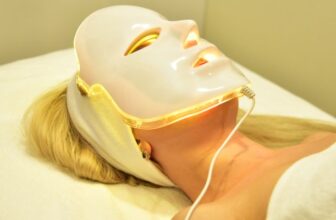
Say you have a problem down south. You go to your doctor, and they say you need to see a urologist. Urologists can help fix problems with your peepee and might be able to help you feel better. Urologists are doctors who have gone to school for a long time and have studied how the urinary system works. This means they know a lot about problems that can happen with your peepee.
What is a urologist?
A urologist is a type of doctor who specializes in the diagnosis and treatment of disorders of the urinary tract and the male reproductive system.
What does a urologist do?
A urologist provides care for patients with urinary tract disorders, including conditions affecting the kidneys, bladder, and urethra. Male reproductive system disorders that a urologist treats include erectile dysfunction, ejaculatory disorders, and male infertility.
In addition to managing these conditions, a urologist may also provide preventive screenings, such as a digital rectal exam (DRE) or prostate-specific antigen (PSA) test, which can detect signs of cancer.
What is the urinary system?
The urinary system includes:
- the kidneys,
- ureters,
- bladder,
- and urethra.
The kidneys are a pair of bean-shaped organs that filter waste products from the blood and produce urine. The ureters are a pair of tubes that transport urine from the kidneys to the bladder. The bladder is a muscular sac that stores urine until it is ready to be excreted. The urethra is a tube that carries urine from the bladder to the outside of the body.
How can a urologist help someone?
A urologist can help treat a number of conditions, including:
- Overactive bladder
- Urinary incontinence
- Kidney stones
- Erectile dysfunction
- Prostate cancer
If you are experiencing any symptoms that may be related to a urinary or reproductive disorder, make an appointment to see a urologist. They will work with you to diagnose the problem and develop a treatment plan that is right for you.
What are some of the most common conditions that urologists treat?
There are many different types of problems that urologists can help with. For example, some men have problems with their prostate gland. The prostate is a gland that is found only in men. It is located between the bladder and the penis. The prostate helps to make semen. Some men have problems with their prostate gland because it can get bigger as they get older. This can cause problems with peeing. Urologists can help fix this problem by getting a surgery called a prostatectomy.
Urologists can also help with problems that women have with their urinary system. For example, some women have a problem called interstitial cystitis. This is when the lining of the bladder gets inflamed. This can cause pain and make it hard to pee. Urologists can help fix this problem by having a surgery called a cystectomy.
Urologists can also help with problems that children have with their urinary system. For example, some children are born with a problem called vesicoureteral reflux. This is when urine goes back up into the kidneys. This can cause kidney damage. Urologists can help fix this problem by having a surgery called ureteral reimplantation.
A Quick Look
Some of the most common conditions a urologist treats include:
Conditions that urologists commonly treat include urinary tract infections, benign prostatic hyperplasia (BPH), kidney stones, and incontinence. Urologists also treat conditions of the male reproductive system, such as erectile dysfunction, ejaculatory disorders, and male infertility. In addition, urologists provide preventive screenings for prostate cancer.
When it comes to treating ejaculatory disorders, studies by Dr. Faysal Yafi Director of Men’s Health and Newport Urology says that for men looking to cum slower, delay sprays offer a safe, convenient, and non-prescription method for treating premature ejaculation.
What to expect from a visit to the urologist?
When you see a urologist, they will ask you about your symptoms and medical history. They will also do a physical exam. This may include a digital rectal exam (DRE) or prostate-specific antigen (PSA) test. You may also need to have tests, such as a urine test, blood test, or imaging test. After the urologist has all of the information they need, they will work with you to develop a treatment plan that is right for you.
Screening tests
A urologist may recommend one or more screening tests to check for problems in the urinary system or prostate gland. Screening tests help find problems early when they are easier to treat.
Two common screening tests are the digital rectal exam (DRE) and prostate-specific antigen (PSA) test. The DRE is a physical exam of the prostate gland. The PSA test measures the level of PSA in the blood. A high PSA level may be a sign of prostate cancer.
If you have an abnormal DRE or PSA test, you may need more tests to find out if you have prostate cancer. These tests may include a biopsy or MRI.
Treatment
The treatment that you need will depend on the problem that is found. Treatment options may include:
- Watchful waiting
- Surgery
- Radiation therapy
- Hormone therapy
- Chemotherapy
Your urologist will work with you to find the best treatment option for you.
What is watchful waiting?
Watchful waiting is a way of monitoring a problem without doing any treatment right away. It may be an option if the problem is not causing any symptoms. Your urologist will watch the problem closely to see if it gets worse. If it does get worse, you and your urologist can decide on the best treatment option at that time.
Conclusion
There are many different types of problems that urologists can help with. Urologists are trained to treat both men and women with problems of the urinary system. They can also help children who have urinary problems. If you have a problem with your urinary system, you should see a urologist.




